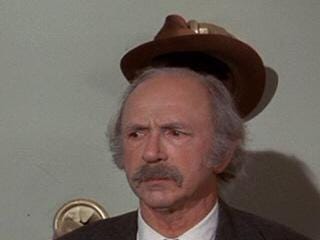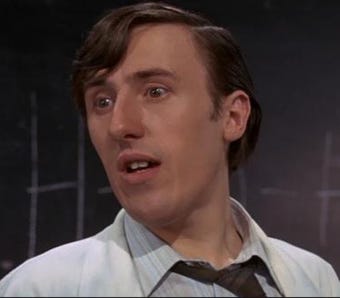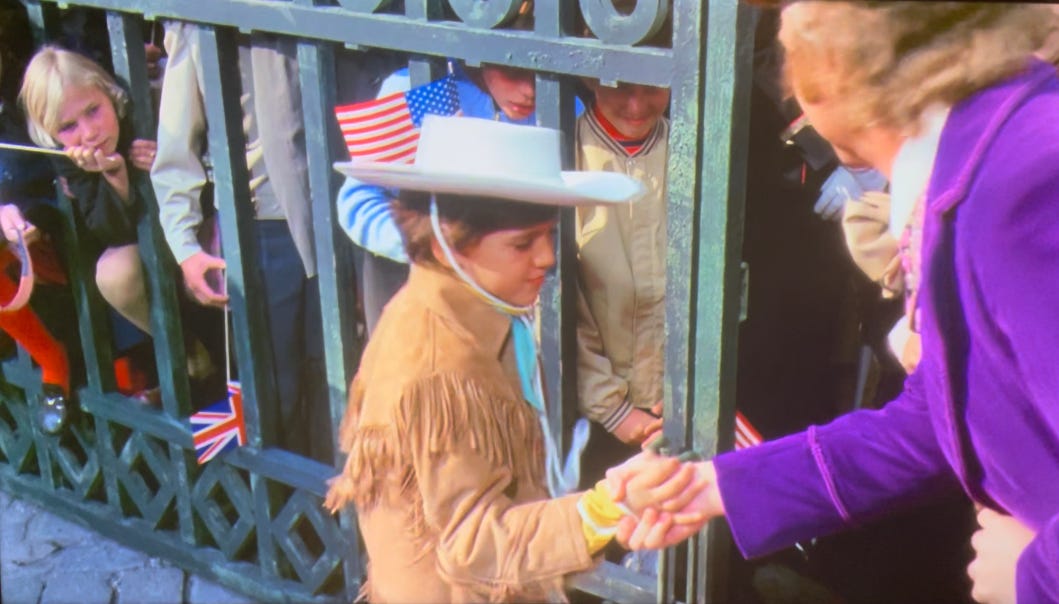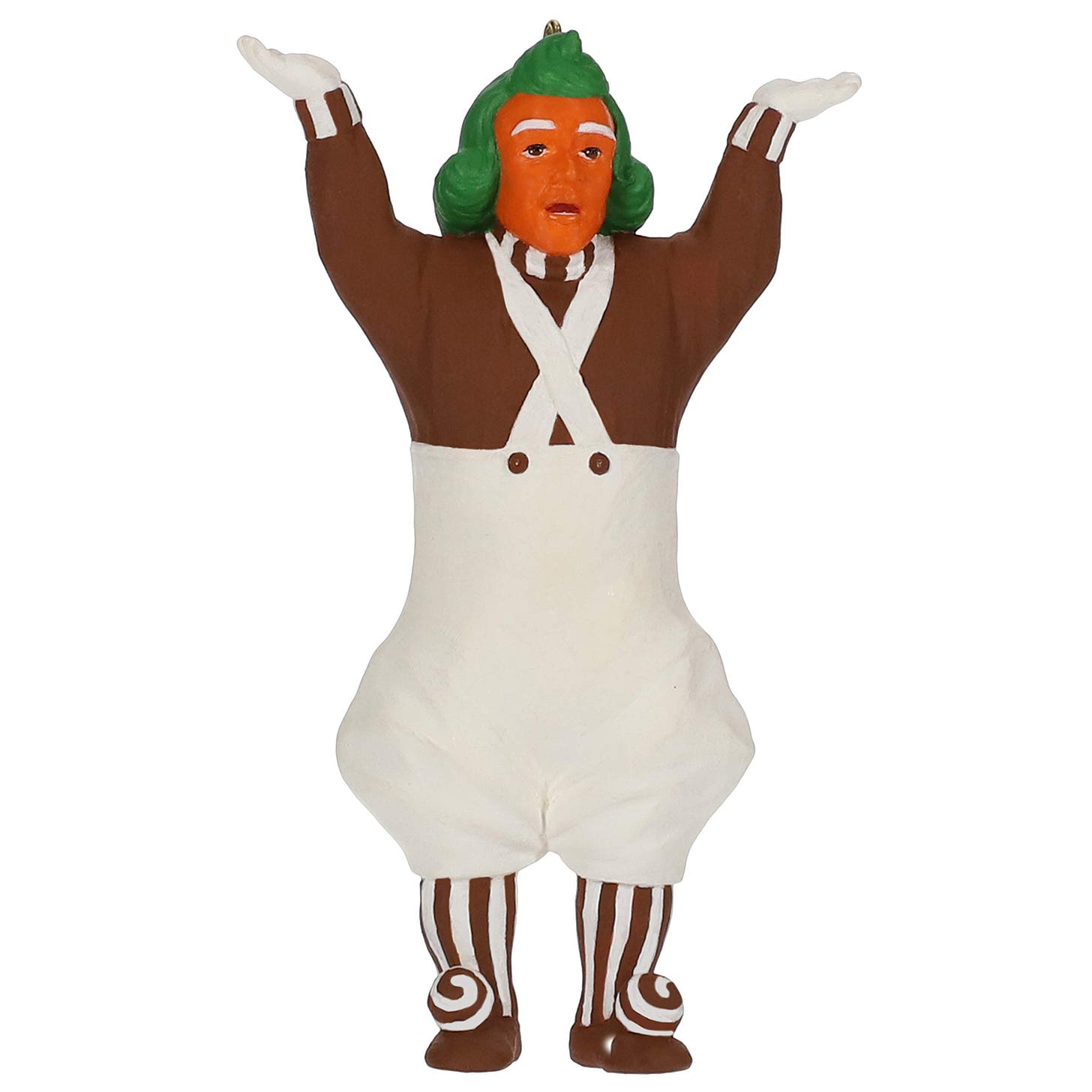Willy Wonka & the Chocolate Factory: A Strange, Beautiful Movie
"A little nonsense now and then is relished by the wisest men."
Hello all, I’m not really sure what I want to say with this piece. All I know is that I HAVE to write about this movie. The 1971 version of “Willy Wonka & The Chocolate Factory” is one of the wackiest, most nonsensical movies I have ever seen, and I LOVE it. Today I’m going to take you through some of my thoughts after my ten thousandth rewatch. Hopefully by the end, you will appreciate it as much as I do.
“Willy Wonka and the Chocolate Factory” (1971) is a staple of my childhood. I’m beginning to notice a trend here writing for 1 AM Media. I tend to be writing about things from my youth from a nostalgic lens. This was not necessarily intentional, but I am noticing how much inspiration I am finding in pieces of media I enjoyed as a youth. It is also a nice coincidence that one of my first posts was a broad look at nostalgia itself. As Bob Ross would say, it’s a happy accident.
If you haven’t been living under a rock for the past fifty or so years, you are familiar with this film. However, if you HAVE been living under a rock, I will give you a synopsis of the film followed by a deep dive into the absurdity of the plot devices and events of the movie.
“Willy Wonka & the Chocolate Factory” follows a young, impoverished boy named Charlie Bucket. Charlie lives with his mother and four bedridden grandparents: Joe, Josephine, Georgie, and Georgina. Charlie helps support his family by delivering papers. The Buckets live in the same town as a prolific chocolate factory. The reclusive owner of the chocolate factory, Willy Wonka, had closed the factory’s doors for many years. No one had seen him since the closing, but everyone loved his chocolate. Suddenly, Wonka decides to start a contest in which five lucky Golden Tickets will be found across the world in his chocolate bars. The tickets grant five lucky people the chance to enter the chocolate factory, and potentially win a lifetime supply of chocolate. After four terrible children find the first four Golden Tickets, Charlie luckily finds the fifth. Grandpa Joe jumps out of bed for the first time in years, and accompanies Charlie to the factory (apparently, he could walk the whole time). The five children go to the factory and meet the eccentric proprietor. As the story unfolds, Willy Wonka takes them on a very strange tour which results in the death/ horrible disfiguration (it was never disproven) of four children. In the end, Wonka awards Charlie’s honesty by giving him the factory. Everyone (who’s still alive) lives happily ever after.
There are quite a few things I want to pick apart before I praise this movie any further:
Setting:
We don’t even see the inside of the factory until FOURTY FIVE minutes into the film. The first half takes place in Charlie’s small town, with glimpses of Golden Ticket Mayhem across the globe. You may be thinking, “It’s a little weird that Charlie wins a Golden Ticket while living in the very same town as the factory. What are the odds?” That may just be me thinking that, but I’ll get into it later.
Grandpa Joe:
This guy is such a dirtbag. I understand that it is an exciting moment when your grandson finds the last golden ticket, but a whole dance number? After you have been bedridden for twenty years? Was watching your daughter/daughter-in-law making cabbage water for dinner every night not enough motivation to maybe walk around a bit? Also, it was Grandpa Joe’s idea to drink the fizzy lifting drinks that caused them to bump into the ceiling, which now has to be washed and sterilized! That little stunt jeopardized Charlie’s only chance to provide a better life for his family (including that bozo Grandpa Joe).
Mr. Turkentine:
Charlie’s school teacher is unfit for his post. The Golden Ticket contest became a wildly popular phenomenon. However, Mr. Turkentine essentially changed the lesson plan for a more Wonka-centric curriculum. He dismisses the class when he finds out about the contest. A week or so later, his math lesson on percentages focuses on how many Wonka bars the kids bought. Firstly, the lesson is terribly taught. He uses this round-about way to find percentages that involve using how many times 100 fits into 1000. When a student says they opened 150 bars, he says something along the lines of “10 hundreds in a thousand, that’s 10 percent half-over makes 15 percent.” Now I’m certainly no mathematician or 1970s teaching method historian but that is not a reliable way to teach percentages. He also tells Charlie he can’t figure out the percentage of 2 Wonka Bars out of 1000. An educational professional should be able to solve that problem. Fire the man.
This handshake between Mike Teavee and Willy Wonka:
What the hell is that? This picture does not do it justice, but the next time you watch it, you must look out for this handshake. It makes me laugh every time.
Logistics of the Golden Tickets:
Here are the facts: The contest put the entire world in a frenzy. Five children won them. Every child was approached during their news press conferences by a creepy scarred man originally believed to be Slugworth (Wonka’s competitor and reason for closing the factory doors). It is later revealed that Slugworth was in cahoots with Wonka all along. If these are the facts, the only logical explanation for “Slugworth” approaching the children quickly enough would be that Willy Wonka knew which kids would find it. There is no way “Slugworth” would be able to find out the location of the ticket winner and travel to them in time to be at the press conference. I would argue that Willy Wonka handpicked the children somehow. After all, “Slugworth did approach Charlie before anyone knew he had a ticket. The whole thing was calculated by Wonka and “Slugworth”.
Methods of Production/The Business:
Wonka takes the kids into the inventing room. He shows his unusual methods of creation. No one bats an eye when he throws an athletic cleat into the mixing pot. Sure his joke is very funny, “Gives it a little kick! 🤌🏻”, but to not even ask a follow-up question is a little alarming. Upon this recent viewing, I wondered what kind of bread Willy was bringing in. After a quick Google search, GOBankingRates.com estimated his net worth at $1.9 Billion. They did not specify if this estimate was accurate to 2023 or 1971. Assuming they were talking about 1971 dollars, his net worth today would be about $14 billion. I don’t know where I’m going with this, but it sounds accurate. Only a man with $14 billion dollars wants to create a giant room where everything is edible, including a chocolate waterfall, but only ever lets 10 people inside.
Oompa Loompas:
Much like the soccer cleats in the mixing pots, the children and their family members BARELY question the existence of the Oompa Loompas, or their ceremonial song and dance routine. When Wonka tells them about their origin, the characters just say they don’t believe him and move on. If I were on the tour, I would not be able to focus on any of Wonka’s fancy gadgets. I would be wondering where these musically gifted young-men came from.
I’ve exhausted myself ripping this movie apart. It almost made me forget all the things I love about it. ALMOST.
The plot itself is fine. I can suspend my disbelief to enjoy a movie (contrary to everything I have written thus far). The songs are memorable, especially Pure Imagination. Every time I watch “Willy Wonka” I find myself singing or humming the song all day.
The most incredible thing about this movie is Gene Wilder. He gives one of my favorite comedic performances of all time. Wilder shines as Willy Wonka, and perfects the art of eccentricity. He enters the film limping with a cane. As he continues to walk, his cane sticks into the ground. When he realizes he does not have a cane, he begins to timber like a tree. That’s when he hits everyone with the ole fake out. He then summersaults into a standing flourish. This is allegedly because Gene Wilder wanted to set the tone that Willy Wonka was unpredictable and unreliable for the rest of the film. His performance is filled with so many quotable moments, I can’t even begin to list them. However, two particular scenes stand out to me. The first is his menacing soliloquy on a boat ride through a tunnel filled with horrors.
The other is his rant about Charlie breaking the rules (even though it was that rat Grandpa Joe).
These scenes speak for themselves. Wilder was perfect for the role. I also love these scenes because they have no place in a children’s movie. Wonka traumatizes the kids for essentially no reason and I think it makes for great cinema. My love for this movie has not wavered as I have grown up, I just appreciate it differently now.
Thanks for reading.
Talk to ya soon.
-CJ













Great flick and excellent analysis!
Loving the nostalgic route with these pieces. Grandpa Joe is classic, all time scumbag!